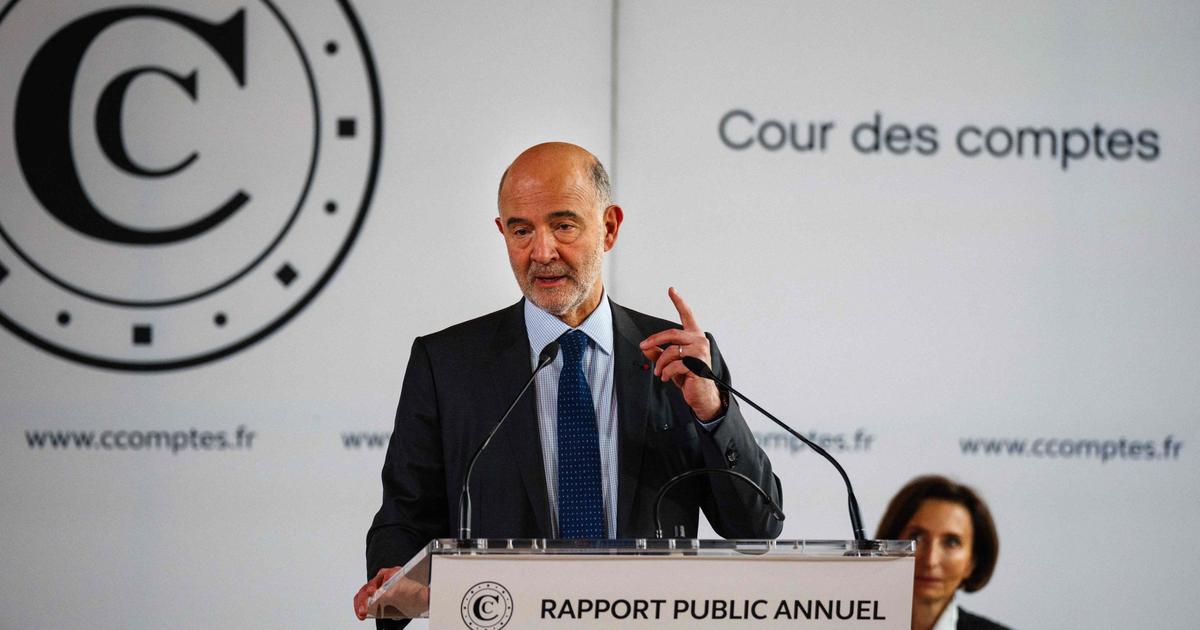The State should spend around 32 billion euros to support the economy in 2021, after a year 2020 which saw the deficit and the debt reach “historic” levels, indicates the Minister of Public Accounts, Olivier Dussopt, this Friday in an interview with AFP.
"We estimate" that the cost of extending the emergency measures to the current date "will exceed 30 billion euros, around 32 billion euros, with 18 billion for the solidarity fund, 11 billion for the activity. partial and around 3.5 to 4 billion euros for exemptions from social contributions, ”said the Minister.
“As we have said, we will continue to help the French and businesses as long as the activity is prevented,” he added.
Last year, the State spent 47 billion for this aid: more than 16 billion for the solidarity fund, about 27 billion for the partial activity (part of which assumed by Unédic) and 4 billion euros. contribution exemptions.
The minister also said he was "optimistic about the rebound capacity of the French economy", thanks to its good resistance at the end of 2020, despite the health restrictions, and thanks to the recovery plan of 100 billion euros decided by the government.
"Historical figures"
The health and economic crisis has already strained public finances last year.
Public debt soared in France to 115.7% of gross domestic product (GDP) and the deficit widened to 9.2%, its "highest level since 1949", the result of a crisis. health and economic unprecedented, said INSEE on Friday.
The debt thus reached 2,650.1 billion euros and the deficit 211.5 billion euros, even if the drift in public finances is a little less important than what the government expected, which was counting on a deficit of 11.3% and a debt of about 120%.
In 2020, the public deficit amounts to 9.2% of GDP, the notified debt to 115.7% of GDPhttps: //t.co/ohte6CSUkx
- Insee (@InseeFr) March 26, 2021
"The figures are both historic and encouraging," responded Olivier Dussopt.
"Historical, because the deficit for the year 2020 is the largest that France has known in the contemporary period, and encouraging because it is less important than what we had imagined," he added.
READ ALSO>
Presidential 2022: what to do with the Covid debt?
In 2019, before the crisis, the debt stood at 97.6% of GDP and the deficit at 3.1%.
But the Covid-19 pandemic has plunged the French economy, with a recession of 8.2% in 2020, and pushed the government to massively support the economy to avoid the bankruptcies of companies, deprived of activity by the health restrictions, and job cuts.
Newsletter It pays me
The newsletter that improves your purchasing power
Subscribe to the newsletterAll newsletters
Public administration spending (State, communities and Social Security) thus jumped 5.5%, an increase of 73.6 billion euros, driven in particular by the increase in social benefits, salaries in the hospital sector and aid released for businesses.
At the same time, the decline in activity widened the level of revenue, which fell by 5%, or a drop of 63.1 billion euros, due to lower income from taxes and social contributions.
"The growth in spending and the contraction in revenue are more pronounced than in 2009", at the time of the financial crisis, underlines INSEE.
"Revenues had then decreased by 3% and expenditure had increased by 4.1%" for a deficit of 7.2%, added the National Institute of Statistics.
For this year, the government plans at this stage to reduce the public deficit to 8.5% of GDP, while the debt is expected to continue to increase to over 122%.




/cloudfront-eu-central-1.images.arcpublishing.com/prisa/OOLBKF5K4VFN7EA7IFFA4PMVUE.jpg)




